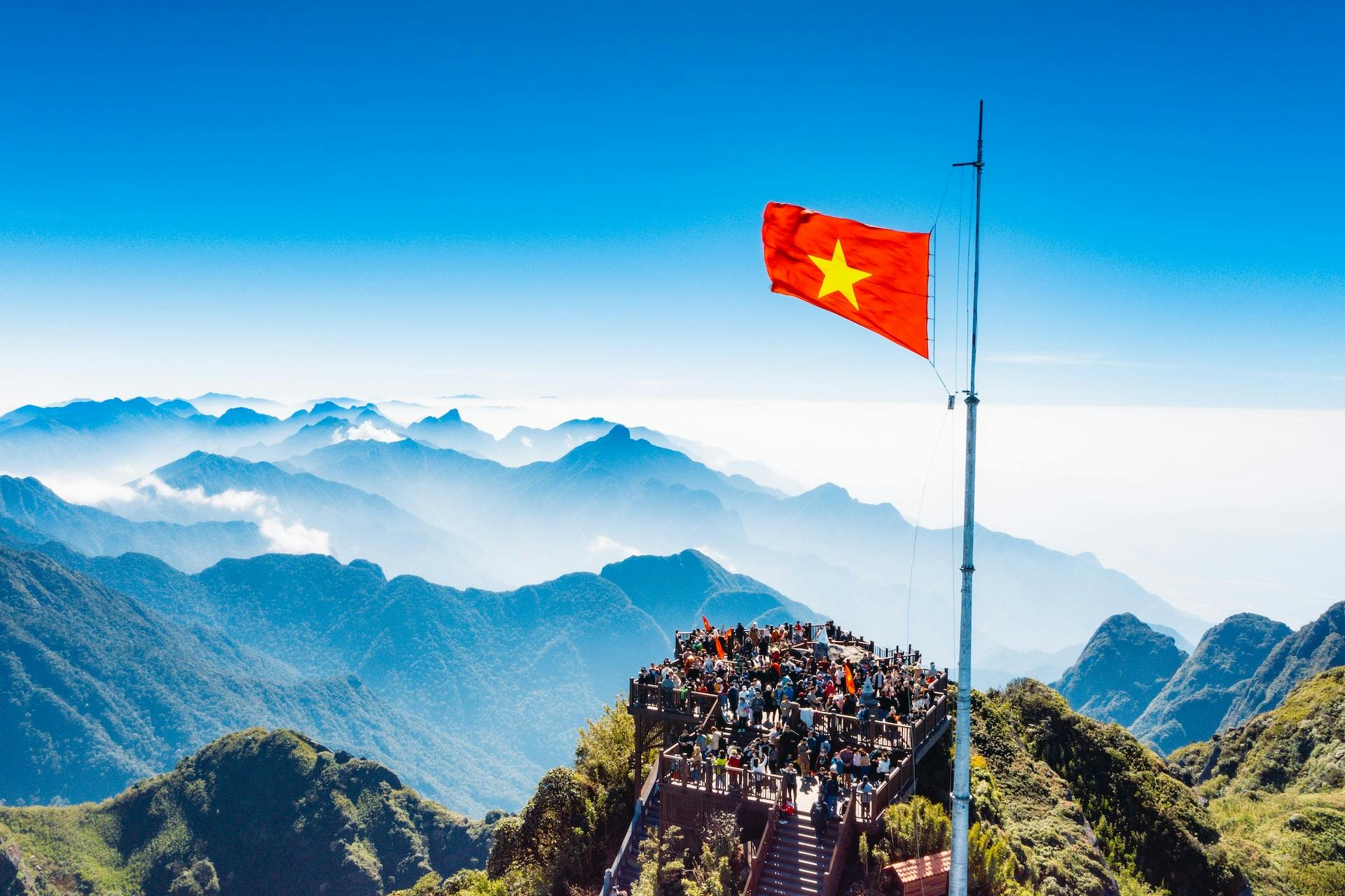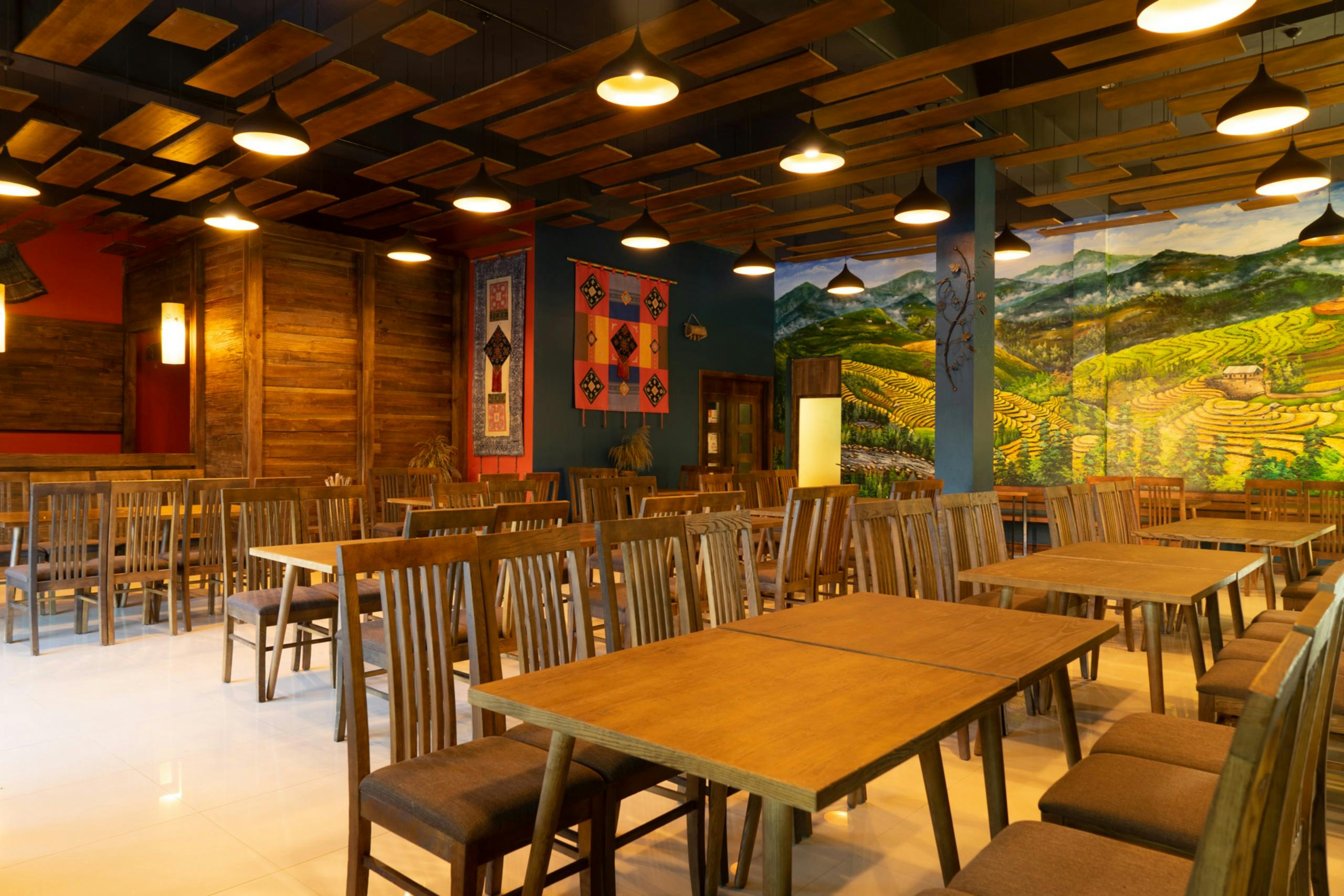Vietnam Predeparture Information
General Information
| Official Name: | Socialist Republic of Vietnam |
| Flag: | |
| Population: | 96.883.015 (2nd January, 2020) |
| Capital City: | Hanoi, population 8.054 million (2019) |
| People: | Viet (Kinh), 53 ethnic minorities including Muong, Tay, Khmer, Mong, Dao, Kadai, Han, Tang |
| Language: | Vietnamese |
| Religion: | Buddhism (mainly Mahayana, with smaller numbers of Theravada), Taoism, Confucianism, Hoa Hao, Cao Dai, Christian (predominantly Roman Catholic, some Protestant), indigenous beliefs, Muslim |
| Currency: | Vietnam Dong (VND) |
| Time Zone: | GMT +7 Hours |
| International Dialing Code: | +84 |
Vietnam is a developing country, you may not expect to enjoy all facilities likely same as your home country. Such as: Infrastructure, hospitality industry and other facilitate may not meet your expectation
General advice on travelling in Vietnam:
- It is not recommended to drink tap water. Purified, bottled water is available throughout the country.
- Bring along the mosquito repellent, sleeping bag, especially while traveling and trekking in upcountry and forested remote areas.
- A hat and the cream are advisable a protection against the hot tropical sun during the tour.
- Casual and light clothing is required, preferably natural fibers, for all year-round, but a sweater or jacket may be useful in the northern part of the country during winter months.
- If touring on the Rivers (Mekong and its tributaries) a windproof jacket is recommended.
- During monsoonal season (May to October) an umbrella and a raincoat should be brought along.
- Adequate suppliers of any prescription medicine are needed, as they may not be available in remote area.
- For exploring of the caves, sculptured walls and interior of the temples a flashlight can really help very much.
- Personal liability insurance cover is recommended in any cases. Vietnam hospitals are generally not up to International Standards.
1. Travel Advice
Vietnam is generally considered as having the lowest rate of crime and the safest country to visit in South East Asia, however, visitors should exercise appropriate security precautions and remain aware of their surroundings. Street crime has been on the increase, particularly motorcycle drive-by theft of handbags. But it is rarely seen outside the capital.
2. Safety and security procedure
Safe traveling is a key issue and our first priority for our customers while on our tours. All our drivers are licensed. The transportation, including vehicles, boats, bicycles and motor cycles use for our customers are provided by local insurance company, however, it is very limited, covering on board passengers and also the third parties (in case of accident only). In case of a customers’ health problem, we have selected the hospitals and clinics listed below:
Hanoi Capital (North of Vietnam)
Viet Duc Hospital
Tel: +84 4 3825 3531
Bach Mai Hospital
Tel: +84 4 3869 3731
For the first aid assistance in remote area, the nearest local hospitals and clinics will be contacted by the local tour guide. Please report all your illness to local guide immediately.
Note: All medical and/or checkup with other fee will be paid by patience customers, Visit Asia Travel will be your coordinator and assistance only.
3. Travel insurance
Travel insurance including emergency medical repatriation, cancellation costs, act of god, and medical expenses is required for passengers who book our trip.
4. Health
There are no specific health requirements for entry into Vietnam. However, you should consult your doctor for current information and prescriptions for vaccinations, anti-malarial requirements and any reasonably foreseeable illnesses whilst travelling in Vietnam. We recommend that you carry a First Aid kit as well as any personal medical requirements (including a spare pair of glasses).
5. Spending money
You will need to allow enough money for meals, drink, shopping, please also bring an additional US$250/person as an “emergency” fund to be used if circumstances outside Visit Asia Travel control (e.g. natural disaster, flight delay,…) necessitate a change to our planned route. This is a rare occurrence! Tipping is very much appreciated by local guides, driver, hotel staffs and restaurant staffs. The suggested tip for guide and driver is around US$5 – 10/per person per day, but it is all depending on your satisfaction of the services. ATM is also available in Hanoi and in the centre of towns/ districts in the mountainous provinces. The withdrawal is converted into local currency, VND. The exchange rate from USD to VND is about US$1 equal 23,000 VND, however, this is not stable; please speak to your guide for details.
6. Visa
Vietnam launched its new e-visa program for visitors from 40 countries starting from 1 Feb 2017. Vietnam currently allows tourists to enter visa-free from Norway, Finland, Denmark, Sweden, members of the Association of Southeast Asian Nations (ASEAN), Belarus, Russia, Japan and South Korea. From 1 July 2015 to June 2021, the Government of Vietnam decided to exempt visa for British, German, French, Spanish and Italian citizens travelling to Vietnam (for all purposes) for a period of up to 15 days. Starting from 23 Nov 2015, the single-entry visa will cost USD25 instead of the current USD45, whereas the fee for multiple-entry visa with validity of less than 3 months will go down from USD95 to USD50. More details, please contact us.
7. Money exchange
Vietnam Dong (cash or travelers cheque) is the most convenient to carry when travelling in Vietnam. Other major international currency may be exchanged in the main cities, where Visa and MasterCard may also be used for cash advances at major bank. ATM is available in Hanoi, Sapa, Halong, and all districts towns or cites centres in cash withdrawal converted into local currency VND. The hotels we use offer exchange services at a reasonable rate. It is not possible to exchange the local currency outside the country so convert or spend all your local currency before leaving. Black markets are reemerging in Vietnam, but is considered a danger and best avoided. A flash money transfer is also available at The Western Union in Hanoi and in Ho Chi Minh City.
8. Meals
The package tour is generally including all breakfast and few principal meals. An indication of how much you will spend per meal is approximately at least US$5 – US$20 depending on what restaurant you have meal.
9. Laundry
Facilities are offered by most hotels for a charge. There will be times when you want to or have to do your own so we suggest bring non-polluting / biodegradable soap. Outside laundry is also available; please speak to your tour guide to find the best one nearby.
10. Check list
At least 6 month validation passport, two passport photos (if you want to obtain visa on arrival) Vietnam visa, travel insurance, air ticket, health requirements. Traveler’s cheques, cash, credit card, Money pouch, first aid kit, day pack to carry your personal needs during the day, alarm clock and torch, flashlight. Sun cream and sunglasses Insect repellent Ear plugs & eyes mask (for light sleepers), raincoat or umbrella in the west season (May to October). Warm clothes for the winter months (Nov to Feb). The mean temperature in Hanoi in January is around 16 degrees Celsius-cool for South East Asia. Bring a winter weight sweater and trousers when travelling in these months, and a jacket too if you feel the cold.


